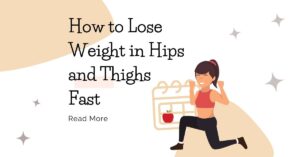The ketogenic diet, more commonly known as keto, has grown in popularity over the last decade, and with good reason. This diet provides results unlike any other by helping you burn fat instead of carbs and protein. One of the most common questions people have about keto relates to how fast they can lose weight on keto, so we’ll break down the process here and show you how much weight you can expect to lose per week on keto.
Losing Weight on Keto
If you want to lose weight in a short amount of time, you need to kick your body into ketosis—the metabolic state where it burns fat for energy instead of carbs. Some people achieve that by drastically reducing their carb intake (through eating fewer than 20 grams of carbs per day). But unless you have a medical condition that requires you to stay in ketosis or are underweight or frail, there’s no real reason to go on a ketogenic diet just to shed pounds quickly, says Edward Jackowski, MS, RDN, CDE. Is Beer Always Unhealthy?
Here’s How Many Carbs Are in Your Favorite Drink.
It’s safe to say that cutting carbs from your diet will lead to some weight loss—but how much depends on what you replace those calories with. Replacing high-carb foods with protein and fat will help keep blood sugar levels steady and fill you up without filling out, says Erin Palinski-Wade, RD, author of 2 Day Diabetes Diet.
Aim for at least 200 grams of protein each day if possible (and 300 grams if you’re very active), since most people who follow a keto diet don’t eat enough protein to meet their basic needs. Aiming for both adequate protein and upping fats helps ensure that blood sugar levels remain stable.
Start planning your meals
If you’re considering keto as a diet option, take some time to plan out your meals for when you first transition. That way, when hunger strikes, it won’t be as hard to stick with. If possible, aim for low-carb recipes and double-check your calories before you eat. After all, keto is known for being very satiating due to its high fat content.
Have a cheat day
During your first month of keto, you probably experienced some weight loss. That’s because glycogen—the primary storage form of carbs in your body—is water weight. As you burn through that stored energy, it’s replaced with water; if you’re lucky enough to have lost a lot of fat in addition to weight, then you might also lose quite a bit of water weight.
Know what to expect when starting keto
Knowing what to expect when you start keto is one of those common-sense ideas that are sometimes hard to execute in practice. When you begin, it can seem a little daunting and complicated, especially if you’re doing keto for weight loss. One day someone may be saying that keto is having a moment, or it’s blowing up; meanwhile, another day will find people posting about how terrible their success with keto has been—and both sides are right! That’s why it’s good to have some background information and education before diving into something new (or old!). With these tips, we hope to give you a leg up.
Calculate your macros
To lose weight on keto, you need to figure out your daily calorie and macronutrient (fat, protein, carb) intake. Luckily, a free online keto calculator makes that easy. Simply plug in your information and calculate away! With a baseline number of calories and macros set up, it’s easier to make wise choices throughout your day; simply check back with a calculation at mealtime to stay within your target range. Over time you can adjust up or down depending on how things are going—either because you hit a plateau or because you’re just looking for ways to fine-tune.
Keep track of your progress
Are you losing weight quickly on keto? If you’re monitoring your progress, then you know your body is adjusting well to a low-carb, high-fat diet. Your body should be able to burn fat without relying heavily on carbohydrates. That’s a good sign that your transition from burning glucose (carbs) for energy is going smoothly. If you notice that your weight loss has slowed down or stalled completely after a few weeks, then it’s time to get creative and adjust your macros. Look at upping your intake of healthy fats and protein while lowering your intake of carbohydrates until you start seeing results again.
Karin’s Thoughts:
Another keto-related health issue to consider is hypoglycemia. Hypoglycemia is common in people with type 1 diabetes and some people with type 2 diabetes. We don’t know exactly what causes it, but we do know that having too many ketones can have a direct effect on your blood sugar levels, causing a sudden drop.
Have you tried doing Keto before? What’s your experience?
XoXO
Karin







